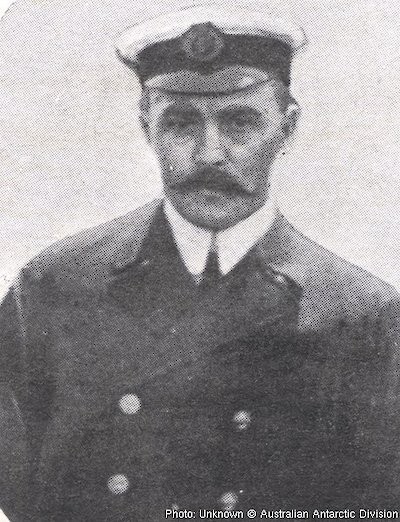F.J. Gillies
AAE position: Chief Engineer of SY Aurora
In their own words
We were most fortunate in the selection of FJ Gillies as Chief Engineer of the Aurora. Quite apart from his high technical skill and efficiency as an engineer, he was the wise counsellor and kindly shipmate of everyone on board throughout the expedition.
— JK Davis, High Latitude
The behaviour of the ship and the conduct of those on board had filled me with pride and admiration. They had all behaved splendidly, and none more splendidly than Gillies, whose skill in keeping the engines turning had been our salvation.
— JK Davis, High Latitude
… going below to the engine room … I became conscious of a certain lightening of the spirit. Here, where Gillies presided over the labours of a small but captive giant, everything ran in well-oiled grooves and bearings and for the moment the roar of the tempest, past and to come, seemed far away and less menacing … And, appropriately enough, the Chief Engineer reflected in his character the efficiency and dependability of his machinery. Gillies and the Aurora were roughly of an age, being both in their middle thirties. He was kindly, patient and wise, a man who not only thoroughly understood his own job but seemed to have a deep understanding and sympathy with the tasks of everyone else. Scientists, stokers and seamen, we were all his friends for, like Professor David, the “Chief”, as he was called, was both gentle and strong, a man of singularly well-developed mind and, as they say today, an “integrated” personality.
— JK Davis, High Latitude
Gillies was born in Cardiff, Wales, in 1876. He served his apprenticeship as an engineer aboard steamers of Cardiff shippers John Shearman and Co. and P Baker and Co., and he served in the Indian trade for six years before joining the AAE. He was chief engineer aboard Aurora for all of its five AAE cruises from 1911 to 1914.
He later served as Chief Engineer under Davis on the 1916–17 relief expedition that rescued marooned members of Shackleton’s Trans-Antarctic Expedition from Ross Island. For this he was awarded the King’s Polar Medal.

